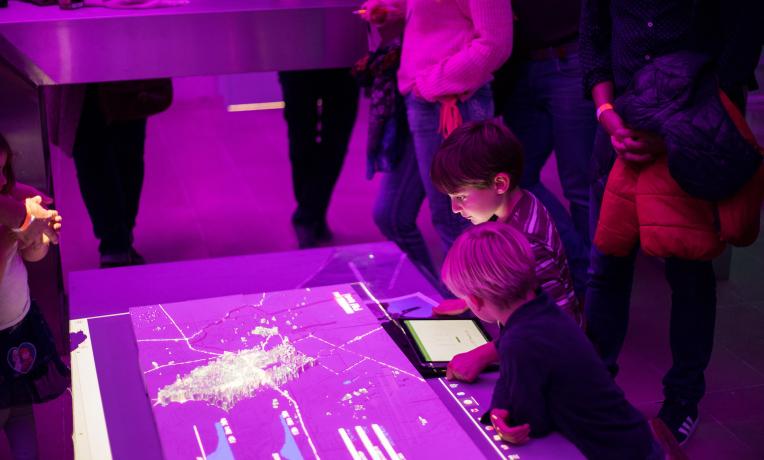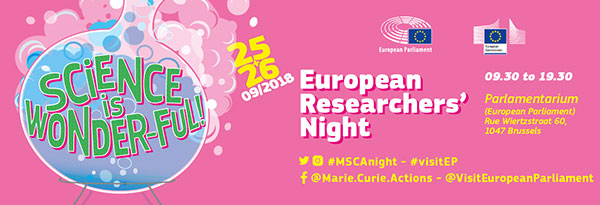When research leaves the ivory tower

Aimed at enhancing recognition of researchers amongst the general public, the NIGHT events are designed to spark young people's interest in science, technology, engineering and maths, encouraging them to consider a career in research. Visitors not only get a glimpse of the fascinating, life-changing daily work of researchers, but also a chance to meet the people behind the science.
By going out and presenting their research, EU funded researchers also showcase the added value of publicly funded research.
"It is our duty as researchers to spread our passion for science,” says María José Estarán, Marie Skłodowska-Curie fellow. “The European Researchers’ Night event is an open forum to do that and also to share our experiences with colleagues that otherwise we would never have met."Since its inauguration in 2005, the NIGHT has expanded massively, with more than 1 million people and 340 cities involved in 2017. To kick-off the 2018 NIGHT events the European Parliament and the Commission have organised Science is Wonder-ful! on 25 and 26 September 2018 at the Parlamentarium in Brussels.
Across Europe, the 2018 NIGHT will offer a wide variety of activities - ranging from the role of gender as an agent for change in Cork, to a robot show in Sibiu and TedTalks in the Scientific Hyde Park in Israel. The range of topics is impressive: "Time travel with a twist", "Science through art", "50 years since the moon landing", "Science for tomorrow", to name but a few. To mark the European Year of Cultural Heritage, around 20 projects are focused on this theme. This includes the ‘Science in the City’(SitC) project in La Valletta where various art forms will be used to engage new audiences with scientific research projects.
Interested in participating as an EU funded researcher or an attendee? Find your closest event here.

This fourteenth edition of the NIGHT, is, as always, funded by the Marie Skłodowska-Curie Actions (MSCA), the EU's flagship programme for the training and career development of researchers. The European Commission introduced the MSCA in 1996 to support researchers in their work, regardless of their age, gender, nationality or discipline. Since then, MSCA has funded more than 120,000 researchers from all over the world and enabled them to experience working in another country, as well as equipping them with the skills to develop their careers within and outside academia.

